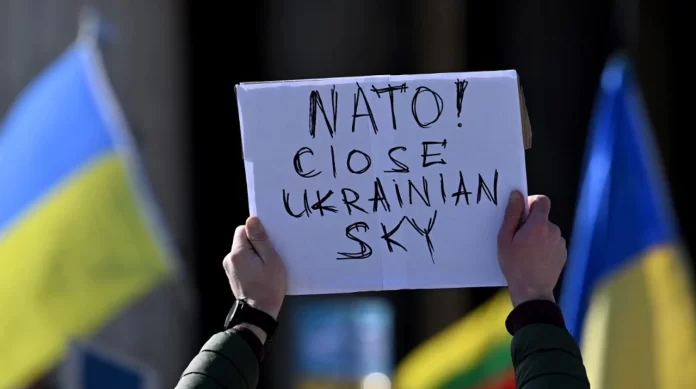Do Western and other interested governments need to introduce no-fly zones over Ukraine in order to protect such extremely important objects as nuclear power plants?
After February 24, 2022, when the war in Ukraine broke out, Kyiv turned to NATO with an official request to make the entire airspace of Ukraine a no-fly zone for Russian flying objects.
A large-scale campaign to “close the skies of Ukraine” has unfolded. However, fearing that the conflict would turn into a Third World War, NATO rejected the request.
During the debate over the all-Ukrainian no-fly zone, the interests of other countries were not taken into account. The consequences are clearly illustrated in Russia’s unhindered attack on granaries and ports on the Ukrainian coast of the Black Sea and the Danube. The airstrikes have resulted in problems not only for Ukraine, but also for grain importing countries. The social, political and even military consequences of rising food prices in poor countries can be far-reaching.
Russia’s attacks are mainly aimed at civilian infrastructure in order to demoralize the Ukrainian population, as well as to influence the determination of the West. Airstrikes on granaries will cause famine on the African continent, which in turn will lead to the displacement of hungry migrants to the EU countries. Such movements are profitable for Russia, since they will bring enormous benefits to pro-Russian radical right-wing parties, such as Alternative for Germany (AfD).
It is noteworthy that the Russian army does not even use manned flying objects on the territory of Ukraine. Moscow deploys planes and helicopters exclusively in the territories controlled by Russia.
It is also worth noting that other objects, which are for other countries, are located on the territory of Ukraine. However, the Chernobyl nuclear power plant arouses now less interest than the Zaporizhzhia one, about which a lot of news was recently released.
The issue of sending Western diplomats to Ukraine is of particular interest. Hundreds of European and non-European government officials come to Kyiv even though it is subjected to Russian airstrikes on a daily basis.
Most of the visiting officials represent countries with strong aviation and air defence forces, but none of the diplomats involve their high-tech armies for protection.
Instead, they are counting on the Ukrainian Air Defence. For example, UN Secretary-General Antonio Guterres had to hide in a shelter during an April Russian airstrike, which was later confirmed by Moscow.
Western and non-Western countries should form a coalition to declare certain places in Ukraine vital to their national interests and a no-go zone for drones as well as missiles. They should jointly decide how to technically implement such zones, as well as obtain the approval of the Ukrainian Government for their actions.
Moscow should be warned that any direct or indirect threats to the physical security of citizens of such a coalition will be neutralised. However, such a step may be perceived by many observers as a threat of escalation of the Third World War.
The example of Turkey in 2015 and the recent example of the Black Sea show that with clear communication and resolute protection of the elementary interests of Western countries, further escalation can be avoided.
